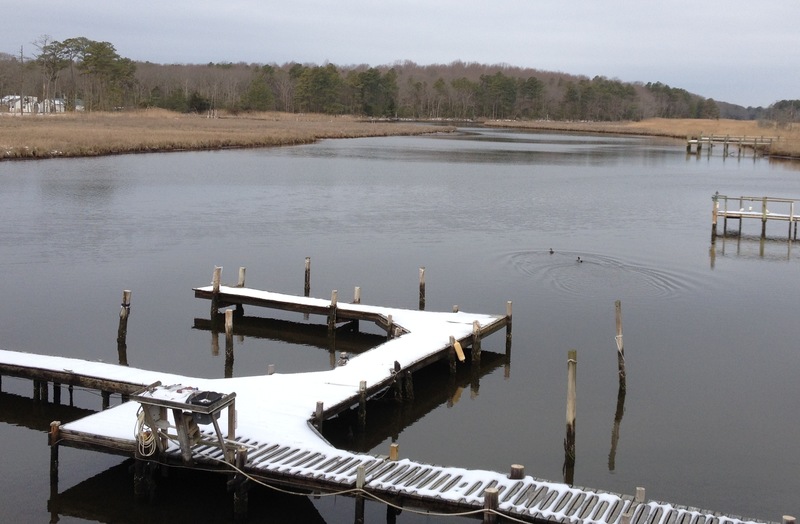Markell says clean water is priority

Gov. Jack Markell wants to clean up Delaware's dirty water - and he wants Delawareans to help pay for it.
On Tuesday, March 4, Gov. Markell introduced a clean water initiative, Clean Water for Delaware's Future, that would pay for roughly $800 million worth of wastewater, stormwater and drinking water projects throughout the state by instituting a clean water fee.
“Clean water is essential for a healthy and prosperous Delaware,” said Markell during the unveiling of the plan in Wilmington. “We have made great strides reducing air pollution and cleaning up brownfield sites, yet nearly every waterway in Delaware, other than our beaches, remains unsafe for swimming and fishing, and nearly every community is struggling with more frequent flooding and storms.”
What the plan will do |
The governor proposed more than $500 million in wastewater-facility upgrades statewide. These include priority projects in all three counties –including underserved communities needing wastewater and drinking water improvements and several at-risk systems currently operated by homeowners associations in Sussex County. He also proposed more than $150 million in stormwater upgrades, more than $75 million for removing toxics, and more than $75 million in upgrades at industrial facilities.
The plan will be collected through county property taxes and generate $30 million annually, Markell said. The fee will leverage more than $120 million annually in total financing for clean water investments.
The amount a homeowner would pay for the proposed fee is based on acreage. For a single-family household living on a half-acre of land, the average cost would be about $45 annually. The fee would increase to between $65 and $85 a year for properties with more acreage. Larger multiresidential, commercial and industrial properties would pay more, with the maximum annual fee capped at $25,000.
Sen. Gary Simpson, R-Milford, said this was the wrong time to propose the plan, especially on the heels of a proposed 10-cent gas tax increase. On Jan. 29, Markell introduced a plan to pay for $500 million worth of transportation projects across the state by increasing the state's fuel tax from 23 cents to 33 cents and borrowing $50 million a year over the next five years. The new tax is estimated to raise $50 million a year.
“We’re just asking too much of Delaware’s people in bad economic times. We’re putting another tax burden on homeowners and businesses at a time when we should be lowering costs and spurring economic development,” he said. “There’s no denying we’ve got water-quality issues here and throughout the United States. But we need to address them at a time – and at a price – that makes sense.”
The state’s list of impaired waters includes 377 bodies of water that suffer from excess nutrients - nitrogen and phosphorus, low dissolved oxygen, toxics, and bacteria. Extensive analysis of chemical contaminants in fish has led to advisories that fish are unsafe to eat in more than 30 waterways statewide.
“The plan will invest in projects that improve water quality, improve community resiliency, protect our health and safety, support our multibillion-dollar tourism and agriculture industries, bolster the economic revitalization of our cities and towns, and increase property values - all while creating thousands of jobs for years to come,” said Markell.
House Minority Leader Daniel B. Short, R-Seaford, said the state's water problems were undeniable, but he wants to hear what constituents had to say about the plan before anything is done.
“Delaware’s citizens would collectively be contributing most of the $30 million raised through the new annual fee. I think we owe it to them to get their opinions on this proposal before we move ahead,” he said. “It should be debated, questioned and potentially changed to reflect citizens’ concerns and input as part of a process aimed at improving the plan and building a consensus for action.”
The existing Clean Water and Drinking Water State Revolving Fund loan programs currently have about $30 million annually available to fund wastewater and drinking water projects, which the governor said was not nearly enough to finance many of the critical projects.
Markell said about 30 percent of the revenues from the new fee would go to wasterwater/drinking water upgrades, while stormwater upgrades would also get 30 percent. The remaining monies would go to conservation and agriculture projects (15 percent); toxics removal, site cleanup and stream restoration (20 percent); and industrial upgrades (5 percent).
The fund will help finance these projects through a combination of low or no-interest loans, affordability grants, credit enhancements, matches for federal grants, and leveraged private financing, all of which will reduce the cost of constructing clean water projects for municipalities and other entities.
Charlie Copeland, Delaware Republican Party chairman, released a statement shortly after the proposal was unveiled. He said the governor should focus on creating job opportunities, not proposing another new tax on Delawareans.
“This morning the governor lectured the citizens of Delaware again about what he feels are their obligations to the next generation, and proposed yet another new tax on Delawareans to make this happen. This time on tap water,” he said. “The truth is, we have a fundamental responsibility to provide an education and good job opportunities to the next generation of Delawareans. Gov. Markell has failed at both of these.”
Chris Flood has been working for the Cape Gazette since early 2014. He currently covers Rehoboth Beach and Henlopen Acres, but has also covered Dewey Beach and the state government. He covers environmental stories, business stories and random stories on subjects he finds interesting, and he also writes a column called Choppin’ Wood that runs every other week. He’s a graduate of the University of Maine and the Landing School of Boat Building & Design.





















































